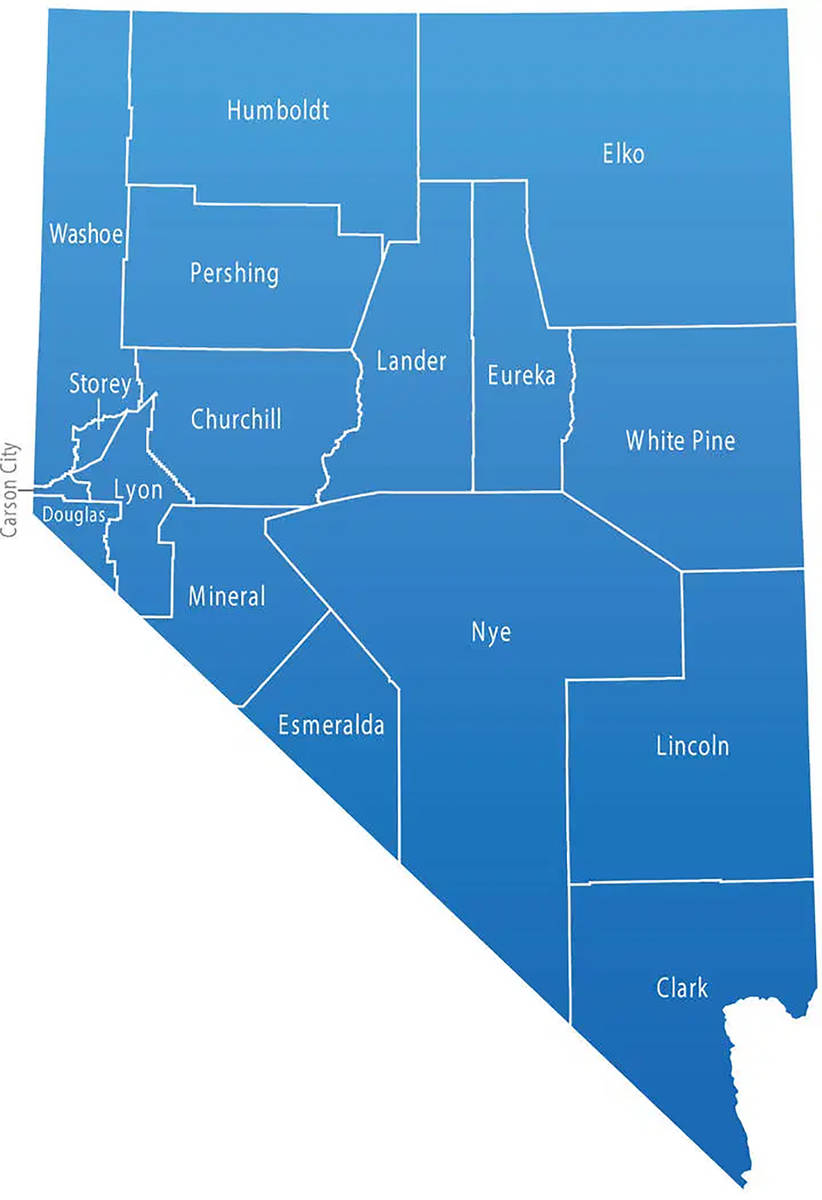Nevada seeing a spike in COVID-19 transmission rates
The state agency Nevada Health Response this week, gave an update on county risk levels related to COVID-19 infections.
This week, the agency noted that 16 of Nevada’s 17 counties are currently deemed as having substantial or high transmission rates, according to a news release issued by Nevada Health Response.
“Counties flagged this week as having a high or substantial risk of COVID-19 transmission include, Carson, Churchill, Clark, Douglas, Elko, Esmeralda, Humboldt, Lander, Lincoln, Lyon, Mineral, Nye, Pershing, Storey, Washoe, and White Pine,” the release stated.
Rising transmission rates
Nevada Health Response officials also noted that Storey County had a high transmission rate for the second week in a row, which as a result, and in accordance with updated state guidance, more stringent masking requirements will go into effect today, Friday, Aug. 27, as laid out by the CDC.
Meanwhile, Esmeralda and Lander counties are now noted as seeing high or substantial transmission rates.
“In accordance with state guidance, if the county maintains a substantial or high risk for another week, the more stringent masking requirements, as laid out by the CDC, will go into effect on Friday, Sept. 3,” the release stated. “White Pine’s rate dropped from high to substantial this week, while Eureka County has been noted as low for three weeks.”
Throughout the state, individuals who are not fully vaccinated are required to wear face coverings indoors or while in crowded outdoor settings.
The CDC recommends that everyone, including fully vaccinated individuals, wear a mask in public indoor settings in counties with substantial or high transmission.
Governor’s emergency regulation
In line with an emergency directive, which went into effect on May 3, Nevada is automatically adopting the latest CDC guidance, related to masks as a statewide requirement.
Last Friday, following a unanimous vote from the Nevada State Board of Health (BOH), Governor Steve Sisolak signed emergency regulations that require state universities, colleges, and community colleges to implement a COVID-19 vaccine requirement for enrollment after Nov. 1, 2021.
“I am grateful to the board of health for passing an emergency regulation to require students attending in-person classes at Nevada System of Higher Education (NSHE) institutions, to provide proof of COVID-19 vaccinations by November 1, in order to be able to enroll for the Spring 2022 semester,” Sisolak said in a statement. “I also want to thank the Medical Advisory Team for providing this policy recommendation upon my request and for the staff at the Division of Public and Behavioral Health for developing the proposal heard at the meeting.”
Vaccination review
Earlier this month, Sisolak announced that he requested his medical advisory team to review vaccinations for NSHE students, and follow the review the medical advisory team recommended, which stated that Nevada should require all post-secondary students within NSHE institutions to become fully vaccinated for COVID-19 and show proof of vaccination prior to registration and enrollment for the spring semester.
The emergency regulations regarding COVID-19 vaccines for higher education students in Nevada will be effective for 120 days and will have to go through a more rigorous public process to be made permanent if health and higher education officials deem it necessary.
Students who are enrolled in distance education programs and do not attend a class on campus are also exempt from the requirement. Existing regulations require that a person shall not attend an NSHE institution until they submit proof of immunity to tetanus, diphtheria, measles, mumps, and rubella, according to Sisolak’s statement.
Contact reporter Selwyn Harris at sharris@pvtimes.com. On Twitter: @pvtimes














